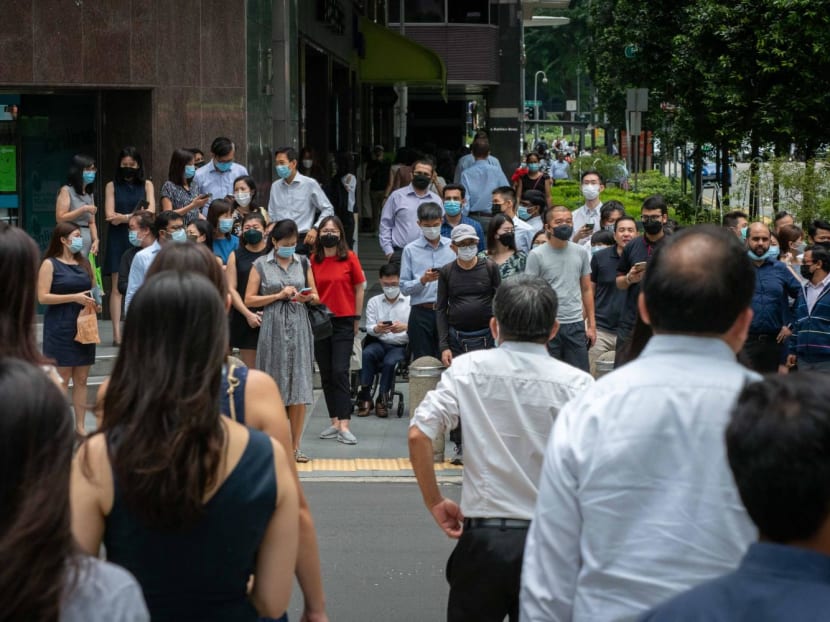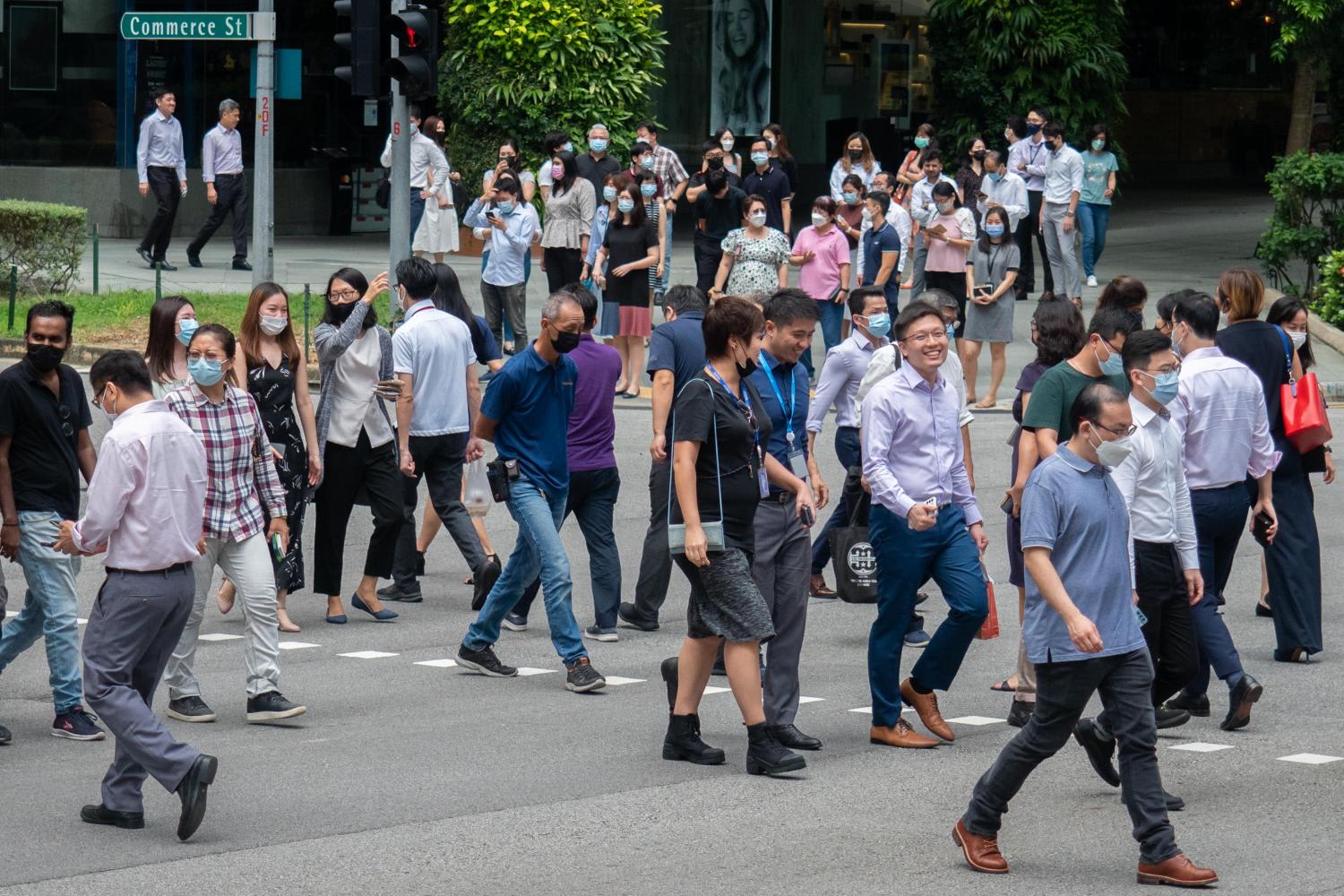Commentary: How Budget 2024 sets out to tackle wage gaps and social mobility in Singapore

Tempering inequality and sustaining social mobility are, without a doubt, among the most significant challenges facing Singapore in its next phase of development. These priorities resonate highly with Singaporeans, as the Forward Singapore (Forward SG) engagement exercise last year revealed.
Budget 2024, delivered by Deputy Prime Minister (DPM) Lawrence Wong on Friday (Feb 16), aims to tackle these issues head-on through a suite of measures to boost income and take-home pay of lower-wage workers, to help Institute of Technical Education (ITE) students narrow the gap with their peers, and give lower-income families with young children the best chance of improving their financial circumstances.
However, Budget 2024 is but the first instalment of a multi-year effort to implement the Forward SG agenda. The challenges are complex, and will require a sustained, whole-of-society effort to bear fruit.
GROWING CHALLENGE OF INEQUALITY AND SOCIAL MOBILITY
As DPM Wong highlighted in his speech, the perils of rising inequality and slowing social mobility are illustrated in other developed countries. Social cohesion has suffered. Societies have turned insular, with a swing towards right-wing political parties that disavow globalisation.
Singapore has thus far avoided this path, but to keep off it, we must redouble efforts to share the fruits of economic progress equitably and leave no one behind.
This is particularly challenging for a small economy heavily reliant on international trade, capital and talent. Market forces in the global labour market tend to push up the wages of those whose skills are in high demand, while depressing the wages of those whose skills are in more abundant supply.
Social mobility also becomes harder to sustain as wealthy Singaporeans pass on assets and other advantages to their children.
ADDRESSING INEQUALITY
Singapore has adopted a two-pronged approach to temper inequality through the Workfare Income Supplement, which tops up the income of lower-wage workers, and the Progressive Wage Model, a set of sectoral wage floors and ladders that allows wages to rise along with productivity. SkillsFuture initiatives also help to raise skills and productivity through retraining and lifelong learning.
These efforts have borne fruit. Lower-income workers (those at the 20th percentile of the income distribution) have seen their wages grow faster than the median wage over the past decade. The Gini coefficient, a measure of inequality based on household incomes, has fallen to 4.33 (3.71 after accounting for government taxes and transfers) last year, the lowest in over two decades.

However, differences in wages between occupational groups, such as between professionals and technical or service staff, remain higher in Singapore than other countries.
To narrow the gap, progressive wages will have to be continually updated. A significant move in Budget 2024 is the increase of the Local Qualifying Salary — the minimum salary a firm that hires foreign workers must pay its local workers — from S$1,400 to S$1,600. This sets an effective floor on local wages since many employers in Singapore hire foreign workers.
The Government is sharing the cost of raising worker wages through enhancements to Progressive Wage Credit Scheme. Such funding, however, will eventually have to taper off, making it essential for firms to increase productivity to offset higher wage and business costs.
In support programmes it is important to ensure that as wages rise, incomes net of benefits continue to rise, so that workers have an incentive to seek higher pay and career progression.
OPPORTUNITIES FOR ALL
The starting pay of university graduates today is about 1.5 times that of polytechnic graduates, and twice that of ITE graduates — gaps that may grow over the course of one’s career.
It is particularly important, therefore, to ensure that the wages and prospects of ITE graduates do not lag too far behind those of their university and polytechnic peers.
Budget 2024 will provide sizeable sums to support ITE graduates in pursuing diploma studies, a skills-focused upgrading pathway that will help improve their career prospects.
However, other changes are needed as well.
ITE graduates must be given fair opportunities to progress in their careers based on skills and job contributions, and not be held back by past grades or qualifications. This is essential for a “continuous meritocracy”, which President Tharman Shanmugaratnam has spoken about. Society itself must place greater value on hands-on skills and not just “head” knowledge.
Mature and older workers, too, should be given fair opportunities to contribute. Age or lack of relevant experience should not be obstacles for them to take up new jobs and careers if they are adaptable and willing to learn. Singaporeans aged 40 and above can avail themselves of support through the new SkillsFuture Level-Up programme, including a S$4,000 SkillsFuture Credit top-up.

SUSTAINING SOCIAL MOBILITY
Singapore has, to date, done relatively well in sustaining social mobility. A 2020 report by the World Economic Forum on social mobility ranked Singapore 20th out of 82 countries surveyed.
However, an Institute of Policy Studies survey conducted in 2022 found that Singaporeans between the ages 21 and 34 were less likely to have seen their social status rise, compared to those who were older.
The challenge in sustaining social mobility is how to uplift lower-income and vulnerable families, some of which face multiple challenges ranging from loss of a breadwinner to chronic illnesses affecting several family members. This may result in disadvantages being passed from one generation to another.
The Government has channelled considerable resources into social services and early childhood education to uplift vulnerable families and give their children the best start in life. Under Budget 2024, fee caps for full day childcare will be lowered in government-supported preschools, and preschool subsidies for lower-income families will be enhanced.
Besides financial assistance, programmes such as KidSTART and UPLIFT provide holistic support for families and children with the help of schools and community partners.
The new ComLink+ pilot programme to be rolled out in 2024 and the four progress packages announced in Budget 2024 will provide lower-income families with guidance and support to improve their life circumstances in areas such as preschool education and employment.
Notably, ComLink+ will address the issue of debt, which is difficult for some families to shake off and can hold back their progress in other areas of life. ComLink+ enlists private donors such as companies and community groups to provide dollar-matching for debt repayment, along with other forms of wraparound assistance.
The challenge now is for the programme to demonstrate success so as to sustain the commitment of corporate and community partners.
The Singapore Story to date has been as much a miracle of social progress as it has been a miracle of economic development. Inclusive growth has brought broad-based prosperity to Singaporeans, laying strong foundations for societal cohesion and national unity.
In order to create the “shared future” referred to in both Forward SG and the 2024 Budget Statement, this must continue to be the priority amid our changing economic and societal context.
ABOUT THE AUTHOR:
Terence Ho is an associate professor in practice at the Lee Kuan Yew School of Public Policy and the author of Governing Well: Reflections on Singapore and Beyond.






